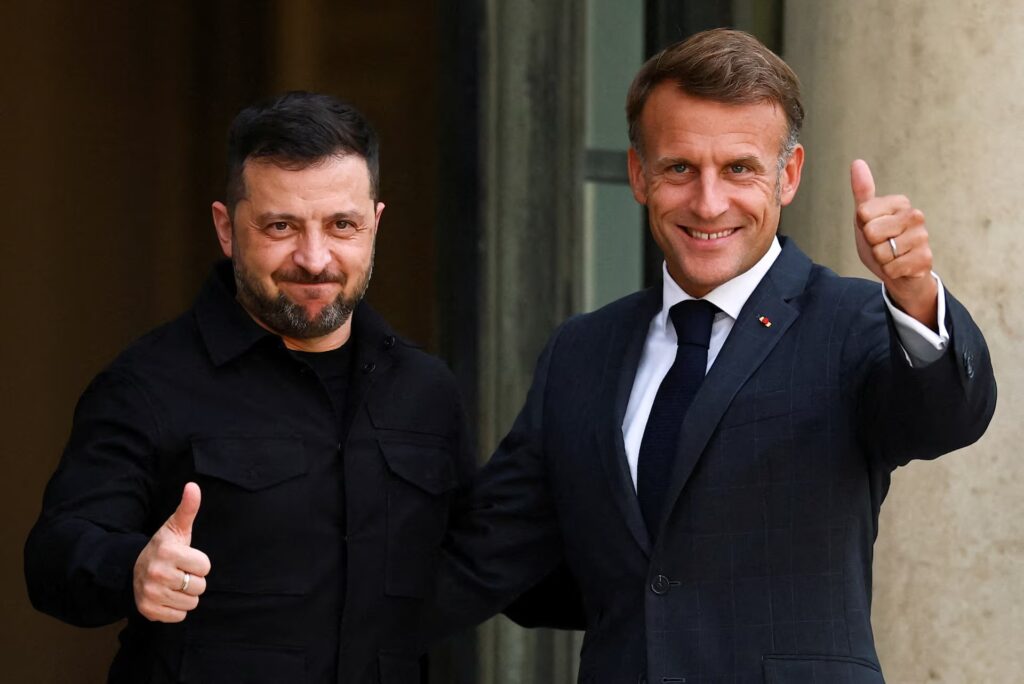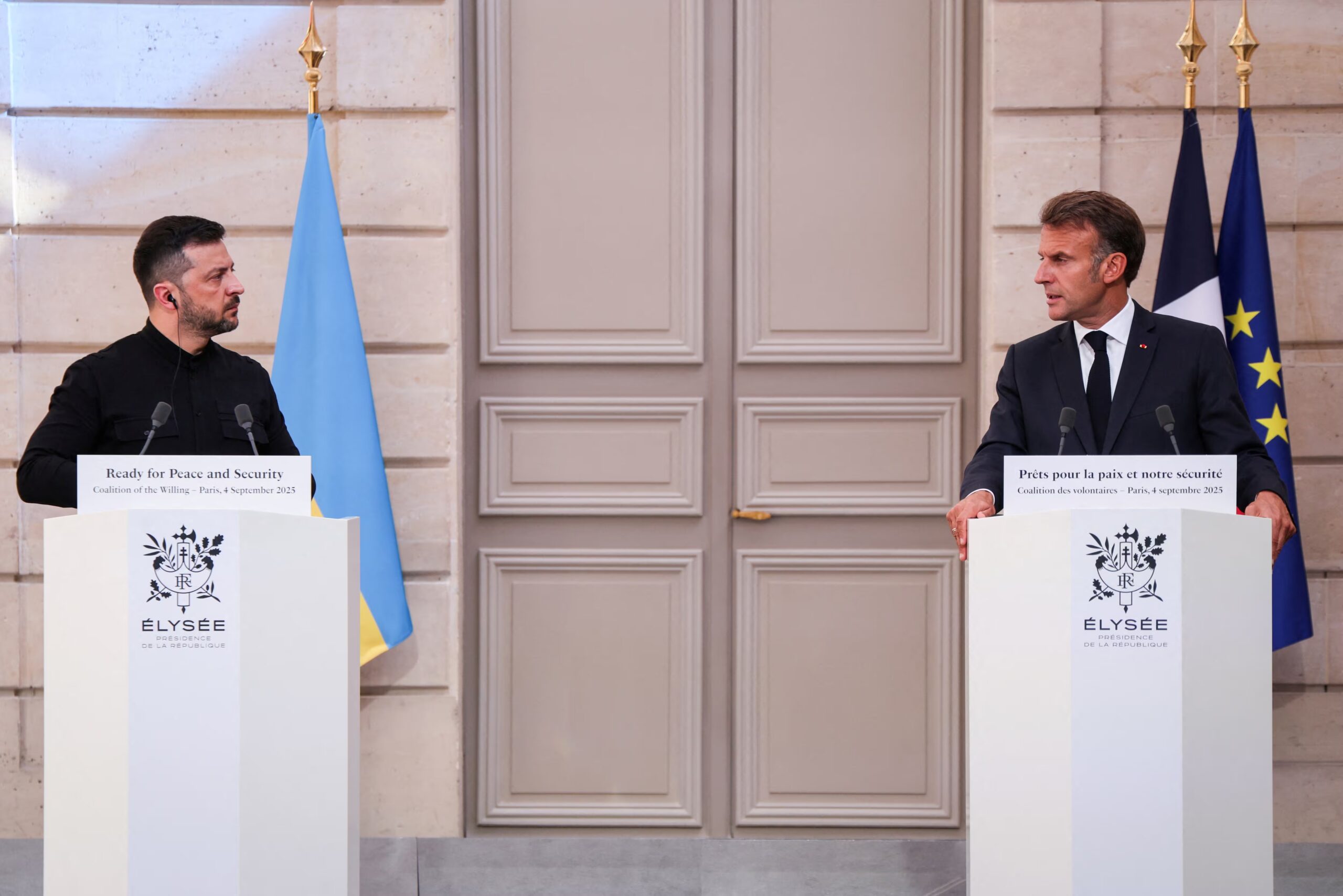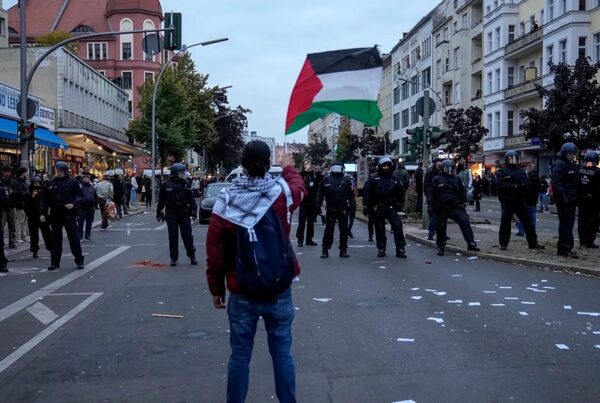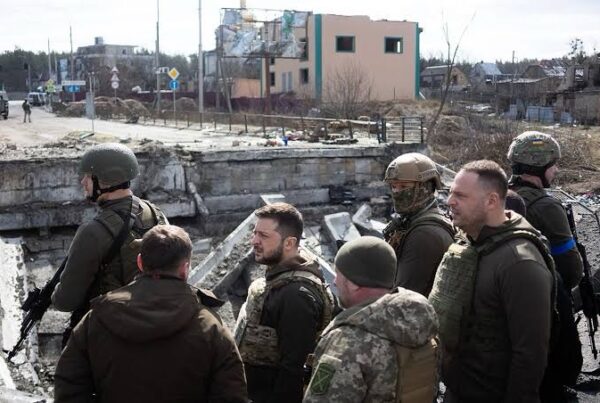French President Emmanuel Macron announced that 26 nations have expressed readiness to send peacekeeping troops to Ukraine once a ceasefire or peace agreement is reached. The statement was delivered at a press conference at the Élysée Palace in Paris, alongside Ukrainian President Volodymyr Zelenskyy. The move is seen as a strong signal to strengthen Kyiv’s diplomatic position while also increasing international pressure on Russia.
Macron emphasized that the security guarantees will be activated on the very first day the fighting stops. The package, referred to as a reassurance force, includes land, sea, and air components. Its main objective is to deter any renewed aggression from Russia and to maintain political stability during the transition to a permanent peace settlement.
Growing International Support
The coalition of 26 nations is referred to as the Coalition of the Willing. Although the full list of participants has not yet been made public, the involvement of European countries along with international partners is considered a sign of strong collective commitment to regional security. Macron also underlined that the support of the United States is beyond doubt, although technical details are still under discussion at the level of defense and foreign ministers.
Ukrainian President Volodymyr Zelenskyy welcomed the declaration. He stressed that Ukraine needs legally binding guarantees, not just political promises. According to him, the deployment of international troops will be a crucial factor in ensuring long-term security and accelerating the path toward peace negotiations.
Conditions for Deployment
The peacekeeping troops will not be deployed before a legally recognized ceasefire agreement is in place. Macron made it clear that the deployment will only occur once the fighting has stopped, meaning the mission should not be interpreted as active intervention against Russia. Instead, it will focus on securing strategic areas, protecting vital infrastructure, and overseeing the implementation of a peace agreement.
Diplomatic sources suggested the mission could involve air surveillance, naval patrols at key ports, and the protection of energy networks. Cybersecurity elements are also under consideration, as digital attacks have become a significant feature of modern warfare.

Lessons from the Past
The decision by 26 nations is regarded as an attempt to address past failures. Observers often point to the 1994 Budapest Memorandum, which did not prevent Russia’s invasion of Ukraine in 2014. Macron stressed that the new package must be more operational and tangible, not just a diplomatic declaration on paper.
Analysts believe this move represents a serious deterrent signal. With the presence of international troops, the political and military costs for Russia to violate a future ceasefire will rise significantly.
NATO and US Response
Although the mission is not officially under NATO’s umbrella, NATO Secretary General Mark Rutte has voiced support for measures that strengthen security in Eastern Europe. The United States, through senior officials in Washington, has also reaffirmed its long-term commitment to Ukraine’s security, including through continued energy sanctions against Russia.
Macron added that coordination with Washington is vital. Discussions are not only focused on troop deployment but also on strengthening embargoes on Russian oil and gas, which remain the main sources of funding for the war.
Implementation Challenges
Despite the strong declaration of support, several questions remain unanswered. First, the full list of participating nations has not yet been released. Second, the command structure and rules of engagement are still under negotiation. Third, the source of funding for the mission remains unclear.
Analysts suggest the legal basis for troop deployment will most likely come from an official invitation by Ukraine, rather than a UN Security Council resolution that could be blocked by a Russian veto. In that case, international legitimacy will rest on bilateral or multilateral agreements signed directly with Kyiv.
Geopolitical Implications
The declaration highlights a new direction in European diplomacy, one that takes a stronger stance against Russia. Macron believes that only with a clear framework of collective security guarantees can Ukraine enter the post-war period with confidence.
Zelenskyy emphasized that the move is not only about troops, but also about cutting Russia’s war funding. Therefore, alongside the presence of international forces, economic sanctions will remain a primary tool.
Conclusion
The decision of 26 nations to prepare peacekeeping troops for Ukraine marks a new milestone in Europe’s security strategy. Although technical details still need to be finalized, the message sent to Moscow is clear: any renewed aggression will face a collective international response.
This situation will serve as a major test for global diplomacy. The success or failure of this mission will shape the security landscape of Europe for decades to come.
Read more related articles on the dynamics of the Russia-Ukraine conflict and Western diplomatic strategies only on Olam News.






